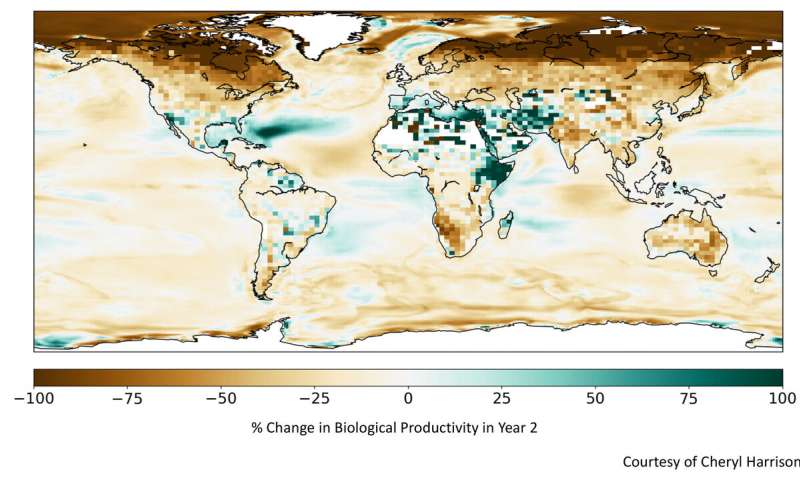According to new research, in less than a week a nuclear war between India and Pakistan would kill between 50 and 125 million people: more than those of the entire World War II.
The study, conducted by researchers at the University of Colorado and Rutgers University, examines the global consequences of a potential conflict between India and Pakistan.
Today, India and Pakistan have around 150 nuclear warheads at their disposal, and there will be over 200 over the next 5 years.
The picture is very dark. A war on this scale wouldn't kill millions of people only locally, he says the research published today in the scientific journal Science Advances. It would drag the rest of the planet into a severe cold wave with temperatures never so low since the last ice age.
The tension rises
The analysis of historical episodes and recent tussles shows a sharply worsening trend in relations between India and Pakistan. Last August, India changed its constitution to include new rights for people living in the long-disputed region of Kashmir. Shortly afterwards, the dispatch of a military contingent produced further tensions.
An India-Pakistan conflict would double the death rate in the. world. An unprecedented thing in human history, which demonstrates how road to self-extinction it should not be taken for granted.
“They are increasing their nuclear arsenal very rapidly,” says Brian Toon, head of the research. “The two nations have large populations and a long-standing unresolved conflict in Kashmir.”
The study in detail
According to the interaction between the collected data and the following analysis, in the event of war the devastation would come in chronological phases:
Week 1: India and Pakistan could detonate more than 250 devices in their respective cities.
Each of these devices has the potential to kill 700.000 people.
Temperatures would drop drastically because the effect of the bombs would block the sun's rays.
Most people would then find death not from the explosions, but from the fires that ensued.
For the rest of the world, fires would be just an appetizer.
80 billion tons of Denson smoke would invade the Earth's atmosphere. By shielding the sun's rays, smoke would lower the Earth's average temperature for several years in a range between -15°C and -12°C, resulting in food shortages across the planet.

“Our study, conducted with an advanced mathematical model, shows negative effects even in the growth of plants on land and algae in the sea. There would also be terrible consequences for the entire food chain,” says the co-author Nicole Lovendushki, associate professor of Atmospheric and Oceanic Sciences and member of the Institute for Arctic and Alpine Research (INSTAAR).
Toon hopes his study will make it clear to people that the end of the Cold War hasn't wiped out the risk of a nuclear holocaust at all.
For further information: OB Toon & AA. VV., “Rapidly Expanding Nuclear Arsenals in Pakistan and India Portend Regional and Global Catastrophe,” Science Advances (2019). DOI: 10.1126 / sciadv.aay5478

